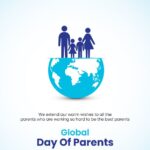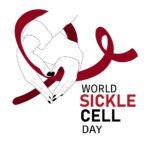🕊️ International Day of Innocent Children Victims of Aggression: A Powerful Reminder of Global Conscience
Each year, on June 4, the world comes together to observe the International Day of Innocent Children Victims of Aggression, a solemn and significant day that shines a painful light on one of humanity’s darkest truths—the suffering of children due to war, violence, and conflict.
- 📜 History of the International Day of Innocent Children Victims of Aggression
- 📅 Timeline of Key Events
- 💔 10 Shocking Facts About Children and Aggression
- ❓ FAQs About the Day
- Q1: When is the International Day of Innocent Children Victims of Aggression observed?
- Q2: Who started this observance?
- Q3: What is its purpose?
- Q4: Is this day only about war?
- Q5: How can individuals or institutions observe it?
- 🧭 Significance of the Day
- 🧒 How the Day Is Observed Around the World
- 💌 Wishing Messages & Awareness Quotes
- 🧠 Importance in Our Lives
- 🏛️ Importance in Society
- 🔎 Observance in Different Regions
- ✨ 5 Must-Remember Points
- 🧠 Daily Life Impacts
- 🔚 Conclusion: From Awareness to Action
This observance is not merely about awareness; it’s a call to action, empathy, and collective responsibility. It speaks for the voiceless victims—the children who bear the brunt of adult-made conflicts they neither created nor understand.
📜 History of the International Day of Innocent Children Victims of Aggression
This day was first observed on June 4, 1983, in the wake of the shocking images of violence inflicted upon children during the Israeli invasion of Lebanon. The United Nations General Assembly, deeply disturbed by the reports and photographs, adopted resolution ES-7/8 to dedicate a day to:
“Acknowledge the pain suffered by children who are victims of physical, mental, and emotional abuse in conflict zones.”
Originally, it focused on the Lebanese conflict, but over time, the day has expanded to represent all children worldwide who suffer from violence, exploitation, abuse, and aggression.
📅 Timeline of Key Events
| Year | Milestone |
|---|---|
| 1982 | Israeli invasion of Lebanon prompts international outcry. |
| 1983 | UN declares June 4 as the International Day of Innocent Children Victims of Aggression. |
| 1990s–2000s | Child soldiers, trafficking, and war zones in Africa and the Middle East gain global attention. |
| 2015 | Syrian conflict highlights mass suffering of children. |
| 2022–2024 | Ongoing wars in Ukraine, Sudan, Gaza, and Yemen underscore the day’s global relevance. |
💔 10 Shocking Facts About Children and Aggression
⚠️ Over 400 million children live in countries affected by armed conflict.
👧 Every 5 minutes, a child dies due to violence.
🧒 An estimated 250,000 child soldiers are currently engaged in conflicts worldwide.
🏠 1 in 6 children globally lives in a conflict zone.
🔫 Sexual violence, including rape and exploitation, is a weapon of war used against young girls and boys.
🧠 Many suffer from PTSD, trauma, and emotional disorders long after conflicts end.
🌍 Conflict zones like Syria, Gaza, Yemen, Sudan, and Afghanistan have seen millions of child casualties.
❌ Aggression isn’t just war—it includes domestic abuse, child labor, trafficking, and psychological neglect.
🏥 Attacks on schools and hospitals violate international law yet continue in modern warfare.
📚 Many affected children never return to school, losing their chance at a safe future.
❓ FAQs About the Day
Q1: When is the International Day of Innocent Children Victims of Aggression observed?
🗓️ Every year on June 4.
Q2: Who started this observance?
It was initiated by the United Nations General Assembly in 1983.
Q3: What is its purpose?
To recognize and advocate for the rights of children suffering from violence and aggression, especially in war-torn regions.
Q4: Is this day only about war?
No. It includes all forms of aggression, including sexual, physical, psychological, domestic, and systemic violence against children.
Q5: How can individuals or institutions observe it?
By raising awareness, donating to child-focused NGOs, organizing educational events, or supporting policies that protect children’s rights.
🧭 Significance of the Day
This day is significant because it:
Brings global attention to the plight of children in violent contexts.
Reminds us of our moral obligation to protect the most vulnerable.
Calls for stronger implementation of international humanitarian laws.
Inspires grassroots movements and policy reforms to safeguard children’s futures.
It urges the world to look beyond statistics and see the faces, dreams, and stories of every child affected.
🧒 How the Day Is Observed Around the World
🌍 Globally
UNICEF, Save the Children, and other organizations hold forums, conferences, and campaigns.
UN reports on grave violations against children in armed conflict are released.
Media coverage and social media campaigns use hashtags like #StopWarOnChildren, #InnocentNotInvisible.
📚 In Schools and Communities
Students are taught about human rights and empathy.
Activities like peace drawings, writing letters to conflict-affected children, or charity drives.
🏛️ Governments and NGOs
Promote child protection policies.
Fund initiatives for mental health, education, and trauma recovery for affected children.
💌 Wishing Messages & Awareness Quotes
While this day is not typically associated with “wishing” in the festive sense, we can still express solidarity and hope:
🕊️ “May the world remember that every child deserves peace, not pain.”
💔 “Let’s raise our voices for the children whose cries go unheard.”
🌱 “Today we remember, tomorrow we act. Stand up for the innocent victims of aggression.”
🌍 “Where there is war, let’s plant peace. Where there is pain, let’s give love.”
🧠 Importance in Our Lives
You may wonder—why should we care if it doesn’t directly affect us?
Here’s why:
We are raising the next generation—their trauma becomes society’s trauma.
The violence children face today shapes the world we live in tomorrow.
Teaching empathy helps our own children become better human beings.
Social responsibility begins with awareness, grows with advocacy, and blossoms through collective action.
🏛️ Importance in Society
A society that protects its children is a society that survives.
Children who experience peace and love are more likely to become peacebuilders, not perpetrators.
Economic development, education standards, and healthcare quality improve when children are protected.
Failing to address childhood aggression leads to long-term cycles of violence, poverty, and instability.
🔎 Observance in Different Regions
Africa: Focuses on child soldiers, education, and health support.
Middle East: Advocacy against war-zone attacks on children.
Europe: Concentration on refugee children, mental health, and integration.
Asia: Focus on trafficking, child marriage, and domestic violence issues.
Americas: Awareness on border conflicts and indigenous children’s rights.
✨ 5 Must-Remember Points
📅 Observed every June 4 under UN declaration since 1983.
🔥 Dedicated to all innocent children victims of aggression, not just war-related.
👧 Includes abuse, neglect, exploitation, and systemic violence.
🌐 Observed globally with events, campaigns, and educational programs.
🚨 A wake-up call for policy, awareness, and global responsibility.
🧠 Daily Life Impacts
Encourages empathy in families and schools.
Promotes child-friendly policies in communities and governments.
Inspires more people to volunteer, donate, or speak out.
Reminds us to teach our children about peace, fairness, and human rights.
Challenges us to become better protectors of the vulnerable, not just observers.
🔚 Conclusion: From Awareness to Action
The International Day of Innocent Children Victims of Aggression is a sobering reminder that violence against children continues to plague our modern world. But it also presents us with a powerful opportunity—to recognize the suffering, educate ourselves and others, and commit to real change.
Every child deserves a safe home, a peaceful community, and a future filled with dreams—not nightmares.
Let this day not end in mourning—but move us toward momentum, reform, and compassionate action.









Amazing! Its actually amazing post, I have got much clear idea on the
topic of from this paragraph.